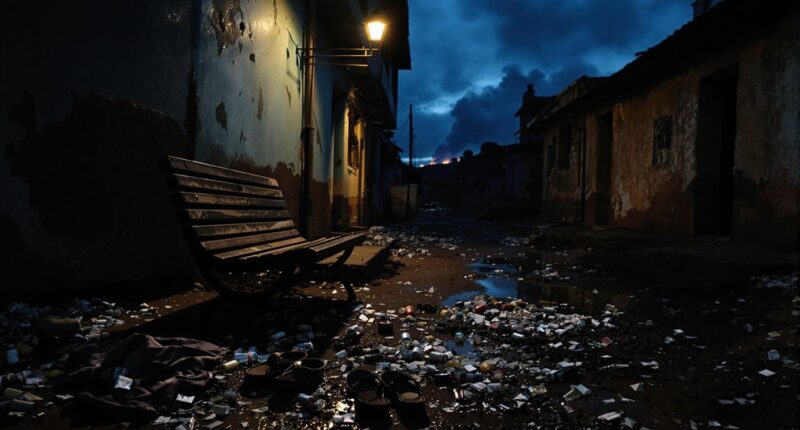Sierra Leone’s synthetic drug “kush” has created a crisis disproportionately affecting women. Only 1 in 18 women with addiction receive treatment, compared to 1 in 7 men. Ninety percent of female users turn to sex work to fund their habit, facing increased risk of violence. The drug contains deadly chemicals, including nitazenes that are 25 times stronger than fentanyl. Government response remains inadequate with few rehabilitation options for the growing number of victims.
Countless women in Sierra Leone are facing a deadly addiction crisis with almost no help in sight. A dangerous synthetic drug called “kush” has swept across the country, claiming lives and destroying communities. For women, the situation is especially dire – only 1 in 18 women with drug disorders receive treatment, compared to 1 in 7 men. This gender gap reflects deep social barriers that leave women suffering in silence.
Sierra Leone’s women face a silent epidemic—trapped in kush addiction with almost no pathway to recovery.
The drug’s chemical makeup presents lethal risks. Some kush samples contain nitazenes, opioids 25 times stronger than fentanyl. About half of tested samples also contain synthetic cannabinoids that can cause psychosis and organ damage. Users often develop liver and kidney failure, respiratory problems, and ulcers. The unpredictable mix makes overdose treatment extremely difficult.
Women trapped in kush addiction face a brutal cycle. Nurses report that 90% of female users resort to selling sexual services to fund their habit. This exploitation often happens in Sierra Leone’s poorest areas, where slums and landfills become drug markets. Smoke from a vast landfill in Freetown has become synonymous with the local drug trade. Many women become drowsy after using kush, leaving them vulnerable to sexual violence. The shame and stigma prevent many from seeking the little help available.
The drug’s supply comes primarily from China, the Netherlands, and the UK. Materials arrive via shipping routes and postal services. Local production has increased in Sierra Leone, making the drug even more dangerous. Street gangs control distribution, while women often handle smuggling across West African borders. The decentralized nature of this trade makes it hard for authorities to stop.
Kush has created such a severe public health crisis that the presidents of Sierra Leone and Liberia declared national emergencies in 2024. The epidemic has spread to neighboring countries including Gambia, Senegal, Guinea, and Guinea-Bissau. At the height of the crisis, mass fatalities required emergency cremations, with some bodies abandoned in streets.
Government responses have been inadequate. Sierra Leone has only two state-run rehabilitation centers. Existing programs have helped about 300 people, mostly men. When authorities cracked down on dealers, prices rose but use continued. The lack of gender-specific support services means women rarely seek treatment.
The kush crisis reveals how economic hardship, limited healthcare, and social stigma create perfect conditions for addiction to thrive. Families fall apart as addiction takes hold, often pushing children into orphanages. Women like Zainab feel deeply isolated while struggling with addiction and engaging in sex work to sustain their habit. Without targeted efforts to address women’s unique vulnerabilities and improved treatment access, countless more will be lost to this deadly epidemic that continues to devastate communities across West Africa.
Conclusion
Sierra Leone’s kush epidemic continues to devastate communities, with women bearing the heaviest burden. While men often receive support from families seeking treatment, women users face rejection and abandonment. Government and humanitarian resources remain scarce, leaving many without hope for recovery. Unless officials address this gender disparity and expand treatment options, vulnerable women will continue to suffer in a crisis that shows no signs of slowing.








